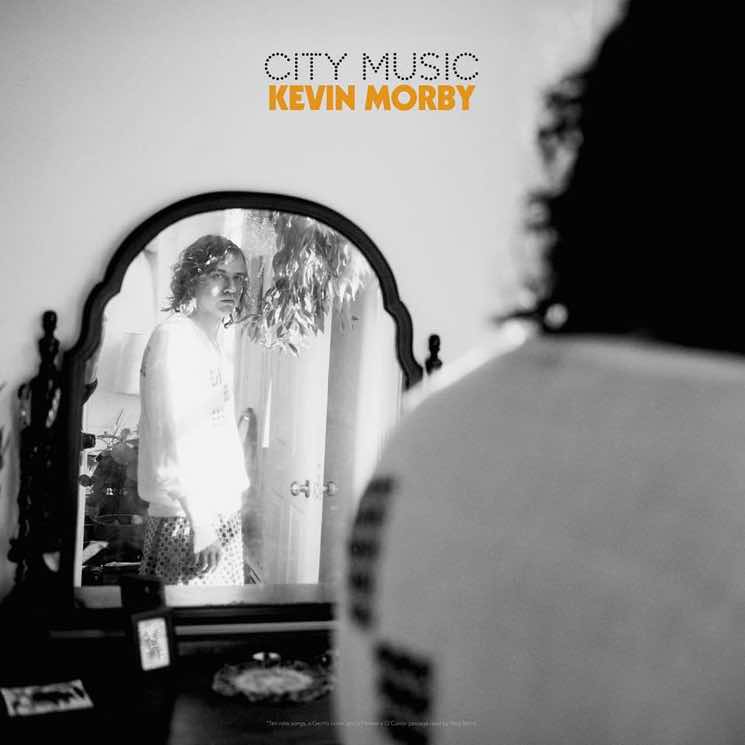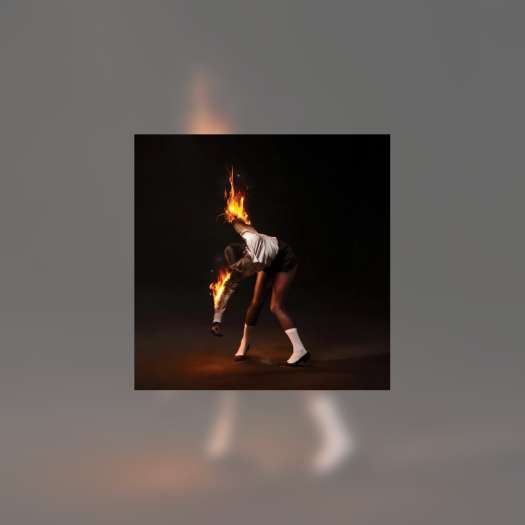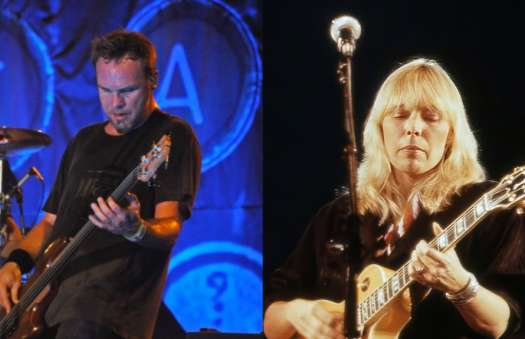Kevin Morby released Singing Saw, his celebrated, orchestral, intricate third album just last year, and already, City Music has arrived as its sparse, Velvet Underground-indebted counterpart.
Whereas Singing Saw was about life in Los Angeles (Morby, originally from Kansas, lives in L.A. when he's not on tour), City Music is more cinematic or novelistic — it hearkens back to Morby's time in New York, where he played with Woods and the Babies, and yet it sort of imagines a parallel life too, as if Morby is putting himself in the shoes of someone (or many someones) in love with the hum of the City despite or maybe even because of how alone or isolated it can make one feel.
The sources of inspiration for City Music were numerous, and contribute to its punk poet celebratory vibe, for it's a celebration of surviving in such a human jungle, above anything else. Morby has said he was inspired by a New York Times story about George Bell, who died alone in his apartment; you can hear echoes of Bell's story in the opening song, "Come to Me Now." Then there's Patti Smith and her recent memoir, M Train; Jim Carroll's "People Who Died," which Morby borrows from on the ripping, intoxicating punk song "1234"; L.A. band The Germs, who suit the genre if not the geography, whose "Caught in My Eye" Morby covers here; and a story by Flannery O'Connor in which a child mistakes the lights of an approaching city for a fire (the excerpt is read by Meg Baird, who also contributes some otherworldly improvised backup vocals on the Germs cover).
But more than anything, City Music feels like Morby's homage to Lou Reed and the Velvets, with its fullness, warmth and distortion, its elemental, sometimes rudimentary rock and its street jamming. Not just one period of the Velvets, either: "Aboard My Train," about friendships, could be on Loaded, while close-mic'd, sparse and intimate "Dry Your Eyes" (just Morby and producer Richard Swift) is more Velvet Underground. "Tin Can," meanwhile, in all its urgency and near-spokenness, recalls "Heroin."
Luckily, Morby is his own lyricist, and a strong one — I hear the influence of lesser-known contemporary Simon Joyner more clearly here — and "Tin Can" not only captures the jammy Velvets vibe with bandmates Meg Duffy and Justin Sullivan (they did most of the record as a trio), it also lyrically summarizes the album. "I am a prisoner here, but I don't mind," Morby concludes, before flying up to an ecstatic "oooo." He's happy in his imaginary shoebox in the sky.
City Music may be where Morby ushered his more rockish side while he was working on Singing Saw, but it maintains a toe or two in the folk world; it's a city-folk album. Towards the end, on quieter "Night Time," our protagonist is home alone listening to Bob Dylan, the reference to "Sad-Eyed Lady of the Lowlands" shorthand for a certain lovesick mood; there's some messy gospel on "Pearly Gates," with Swift's three daughters singing backup vocals — they manage to sound both tacked on and super beautiful at the same time. A get-in-your-head melody concludes the record with the Townes Van Zandt-inspired "Downtown's Lights."
In its own way, City Music is just as ambitious as the more obviously musically ambitious Singing Saw was; have this on hand for certain literary yet off-kilter late night city moods.
(Dead Oceans)Whereas Singing Saw was about life in Los Angeles (Morby, originally from Kansas, lives in L.A. when he's not on tour), City Music is more cinematic or novelistic — it hearkens back to Morby's time in New York, where he played with Woods and the Babies, and yet it sort of imagines a parallel life too, as if Morby is putting himself in the shoes of someone (or many someones) in love with the hum of the City despite or maybe even because of how alone or isolated it can make one feel.
The sources of inspiration for City Music were numerous, and contribute to its punk poet celebratory vibe, for it's a celebration of surviving in such a human jungle, above anything else. Morby has said he was inspired by a New York Times story about George Bell, who died alone in his apartment; you can hear echoes of Bell's story in the opening song, "Come to Me Now." Then there's Patti Smith and her recent memoir, M Train; Jim Carroll's "People Who Died," which Morby borrows from on the ripping, intoxicating punk song "1234"; L.A. band The Germs, who suit the genre if not the geography, whose "Caught in My Eye" Morby covers here; and a story by Flannery O'Connor in which a child mistakes the lights of an approaching city for a fire (the excerpt is read by Meg Baird, who also contributes some otherworldly improvised backup vocals on the Germs cover).
But more than anything, City Music feels like Morby's homage to Lou Reed and the Velvets, with its fullness, warmth and distortion, its elemental, sometimes rudimentary rock and its street jamming. Not just one period of the Velvets, either: "Aboard My Train," about friendships, could be on Loaded, while close-mic'd, sparse and intimate "Dry Your Eyes" (just Morby and producer Richard Swift) is more Velvet Underground. "Tin Can," meanwhile, in all its urgency and near-spokenness, recalls "Heroin."
Luckily, Morby is his own lyricist, and a strong one — I hear the influence of lesser-known contemporary Simon Joyner more clearly here — and "Tin Can" not only captures the jammy Velvets vibe with bandmates Meg Duffy and Justin Sullivan (they did most of the record as a trio), it also lyrically summarizes the album. "I am a prisoner here, but I don't mind," Morby concludes, before flying up to an ecstatic "oooo." He's happy in his imaginary shoebox in the sky.
City Music may be where Morby ushered his more rockish side while he was working on Singing Saw, but it maintains a toe or two in the folk world; it's a city-folk album. Towards the end, on quieter "Night Time," our protagonist is home alone listening to Bob Dylan, the reference to "Sad-Eyed Lady of the Lowlands" shorthand for a certain lovesick mood; there's some messy gospel on "Pearly Gates," with Swift's three daughters singing backup vocals — they manage to sound both tacked on and super beautiful at the same time. A get-in-your-head melody concludes the record with the Townes Van Zandt-inspired "Downtown's Lights."
In its own way, City Music is just as ambitious as the more obviously musically ambitious Singing Saw was; have this on hand for certain literary yet off-kilter late night city moods.




